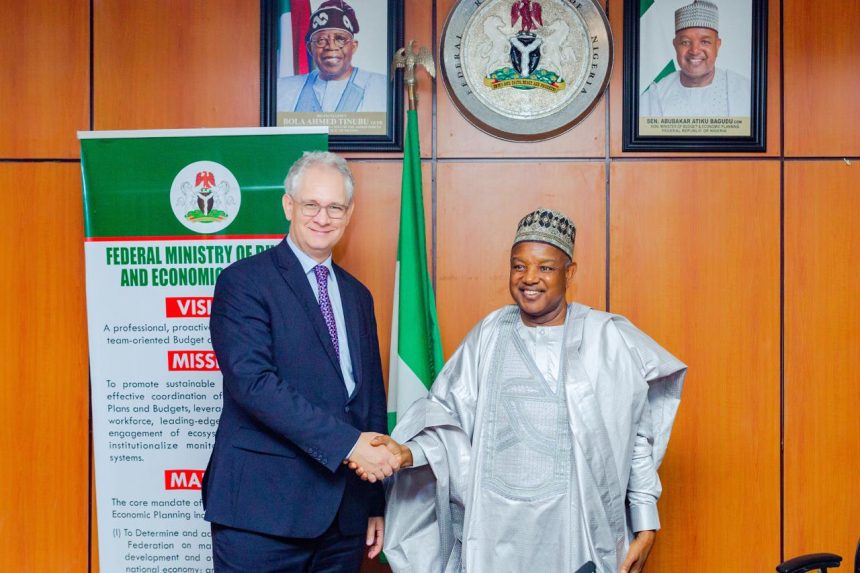IMF Praises Nigeria’s Reform Consistency
…Consults on 2026-2030 Development Plan
By Patience Ikpeme
The International Monetary Fund (IMF) and the Federal Government of Nigeria met in Abuja on Friday to discuss the country’s ongoing economic reforms, its medium-term outlook, and critical preparations for the upcoming 2026–2030 National Development Plan.
The IMF delegation, led by Assistant Director of the African Department Mr. Axel Schimmelpfennig, held discussions with the Minister of Budget and Economic Planning, Senator Abubakar Bagudu, as part of the Fund’s consultative mission to review Nigeria’s fiscal priorities and reform trajectory ahead of its next country report.
In his opening remarks, Mr. Schimmelpfennig commended Nigeria’s policy momentum and conveyed the IMF’s interest in understanding how the country’s medium-term strategy aligns with its broader development agenda.
“We would like to hear your thoughts on current developments — your outlook for the next year and the medium term,” he said. “We understand that you are preparing the medium-term framework, the National Development Plan, and the 2026 budget. Having your overall vision at this stage will be extremely helpful,” Schimmelpfennig stated.
He also observed that while pre-election years often introduce uncertainty globally, Nigeria’s current policy coherence signals strong institutional maturity.
Schimmelpfennig noted that: “Every country manages pre-election periods differently. But what we see in Nigeria is a continued commitment to reform and policy consistency — a signal of growing institutional strength.”
Responding to the IMF official’s inquiry, Senator Bagudu confirmed the government’s commitment to aligning fiscal reforms with national planning to ensure coherence, efficiency, and inclusive growth. He also expressed gratitude for the IMF’s constructive engagement and technical assistance over the past two and a half years.
“We are deeply grateful for the guidance and encouragement we have received from the IMF and World Bank. Your interrogation and feedback have played a vital role in refining our reforms and ensuring that our economic management remains evidence-based,” the Minister said.
Senator Bagudu explained that Nigeria’s reform journey under President Bola Tinubu is characterized by discipline, inclusion, and transparency, values that have started to produce measurable progress. He stressed that the administration’s vision of a $1 trillion economy by 2030 is based on disciplined reforms and coordinated national planning.
The Minister further explained the ongoing work on the 2026–2030 National Development Plan, stating it seeks to align strategies across federal, state, and local governments into a cohesive, data-informed framework for sustainable development.
“We are working to make the plan a reflection of Nigeria’s collective ambition — one that incorporates fiscal discipline, subnational collaboration, and the reforms necessary to sustain long-term growth,” he added.
Bagudu detailed that the Renewed Hope Ward-Based Development Plan aims to identify and utilise the economic potential of Nigeria’s 8,809 wards, creating a framework for inclusive, bottom-up growth.
The Minister concluded by underlining the importance of ongoing collaboration with the IMF on macroeconomic modelling and fiscal planning to enhance policy insights.
“We are not lamenting; we are learning and refining,” he said, explaining, “Our partnership with the IMF is about innovation, not dependency, and will continue to guide Nigeria’s reform-driven path towards sustainable growth.”




